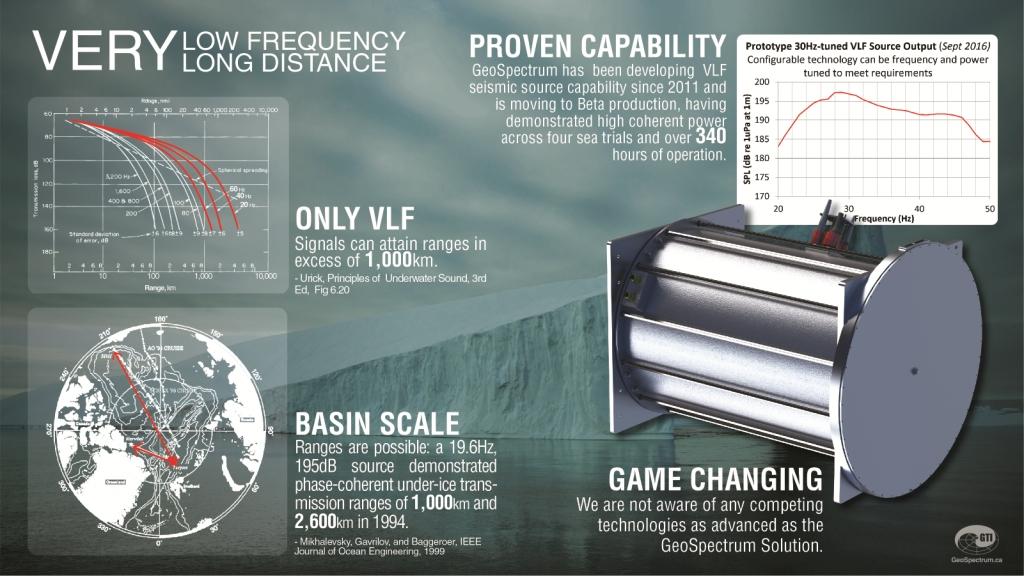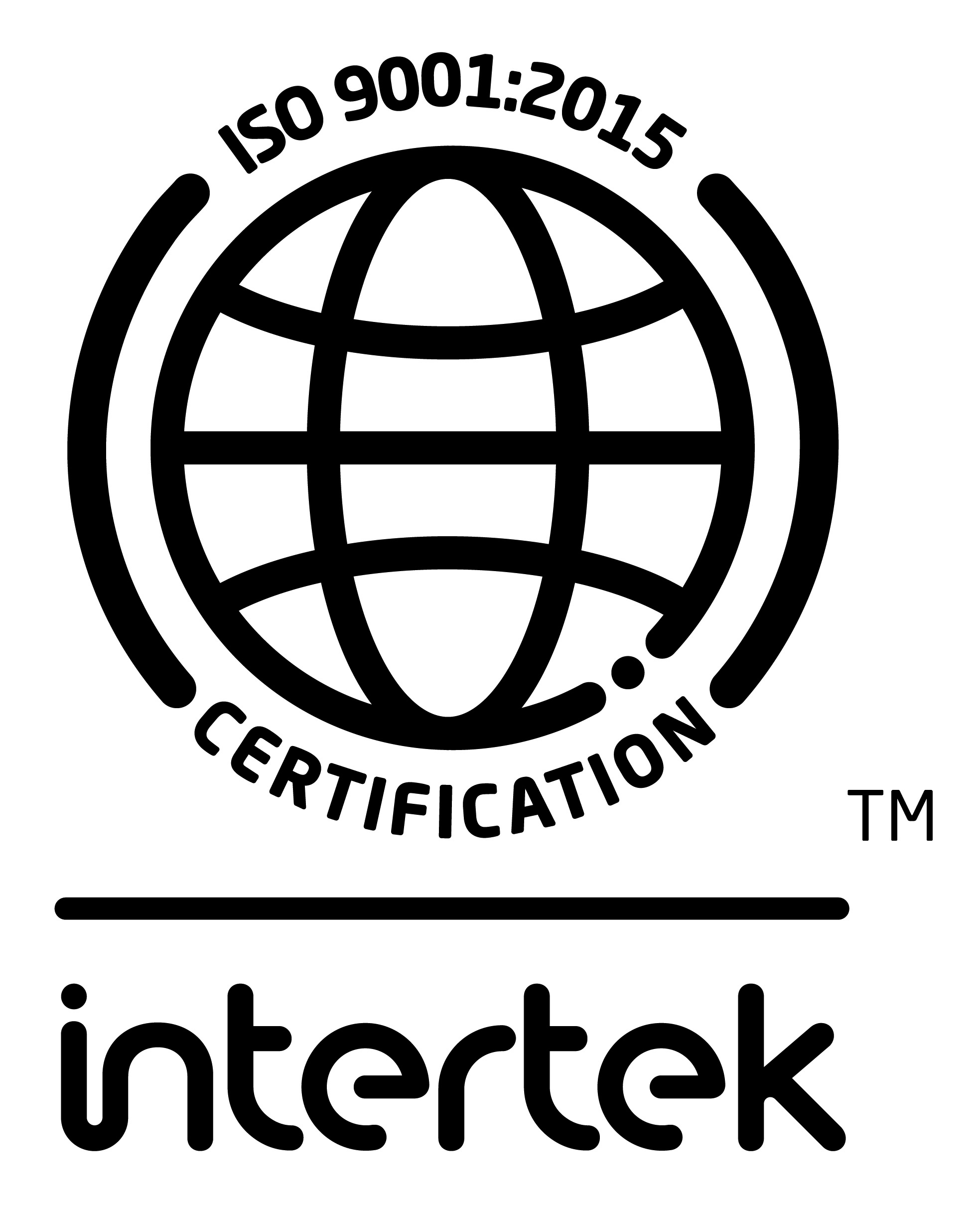GeoSpectrum Technologies (GTI) announces the award of two contracts from the Department of National Defence under the ADSA Science and Technology (S&T) program.
Under the first contract – Long Range Detection and Communications – GTI will build and field-demonstrate a Very Low Frequency (VLF) acoustic source for long distance underwater detection and potentially basin-scale (1000 km) communications, as well as supporting, for example, an Unmanned Underwater Vehicle (UUV) engaged in under-ice work. This source will be suitable for year-round Arctic deployment, capable of providing persistent surveillance and messaging over very long ranges in environmentally hostile and acoustically challenging waters.
“We look forward to the possibilities offered by made-in-Canada solutions, such as those put forward by GeoSpectrum under the All Domain Situational Awareness S&T program.”
Harjit S. Sajjan, Defence Minister
Under the second contract – Low Frequency Towed Array – GTI will develop and fielddemonstrate a passive horizontal thin line array suitable for towing from a persistent UUV. The design innovations in the array will make it suitable for year-round underwater and under-ice Arctic operations. It will be capable of very long range detection in these environmentally hostile and acoustically challenging waters, and be suitable to support persistent surveillance for months, with vehicle ranges beyond 1000 km. Both the payload capacity and the energy budget in current and near future UUVs are highly constrained, so the array will generate extremely low drag, use minimal energy, and exhibit stable towing performance at very low speed while remaining robust and commercially viable to produce.
Harjit S. Sajjan, Defence Minister, said: “Innovative solutions to challenging surveillance problems are the key to the future for the men and women in the Canadian Armed Forces tasked with keeping an eye on Canada’s coastal areas, particularly in the Arctic. As we work with our U.S. partners to renew the North Warning System and modernize the North American Aerospace Defense Command, we look forward to the possibilities offered by made-in-Canada solutions, such as those put forward by GeoSpectrum under the All Domain Situational Awareness S&T program.”
Paul Yeatman, President of GTI, commented: “We’re proud and excited to have the opportunity to work with the Department of National Defence to improve Arctic surveillance. It has been well known for decades that very low frequency acoustics can provide long-range detection and communications capability, but until recently the physical size and reliability of the hardware was prohibitive. For the long range detection and communications project, we intend to leverage a family of ruggedized acoustic sound sources (sonar sources) developed in conjunction with marine seismic survey company PGS. Although these have been developed to provide an improved method of searching for oil and gas deposits, they can also be used for long range detection and communications. The thin line array we are developing for the low frequency towed array project will provide the capability for unmanned marine vehicles to detect these low frequency returns and is seen as a game changer.”
Both projects will be executed with the assistance of several local organizations including Hines Ocean Science and Technology, Jasco Applied Sciences, and Dalhousie University. Work on this program will in part be based on equipment GTI has developed with support from Atlantic Canada Opportunities Agency (ACOA) and the National Research Council Industrial Research Assistance Program (IRAP).
Darren Fisher, Member of Parliament for Dartmouth – Cole Harbour. “Our government’s focus on innovation is building solid partnerships across the country. In Nova Scotia, high tech firm GeoSpectrum Technologies Inc. is creating state of the art underwater acoustic equipment and systems to support marine surveillance and exploration in a manner never before possible. Their industry-leading products and designs are benefitting Canadians by helping to enhance the safety and security of our Arctic waters.”
The All Domain Situational Awareness (ADSA) is an S&T program from the Department of National Defence. ADSA’s intent is to coordinate and fund research and analysis to support the development of options for enhanced domain awareness of air, maritime surface and sub-surface approaches to Canada, in particular those in the Arctic. This research and analysis will be delivered through collaboration with other government departments (OGDs), academia, industry and allies. Surveillance solutions explored and selected will strengthen the Government of Canada’s ability to exercise sovereignty in the North, and will provide a greater whole-of-government awareness of safety and security issues, as well as transportation and commercial activity, in Canada’s Arctic.



